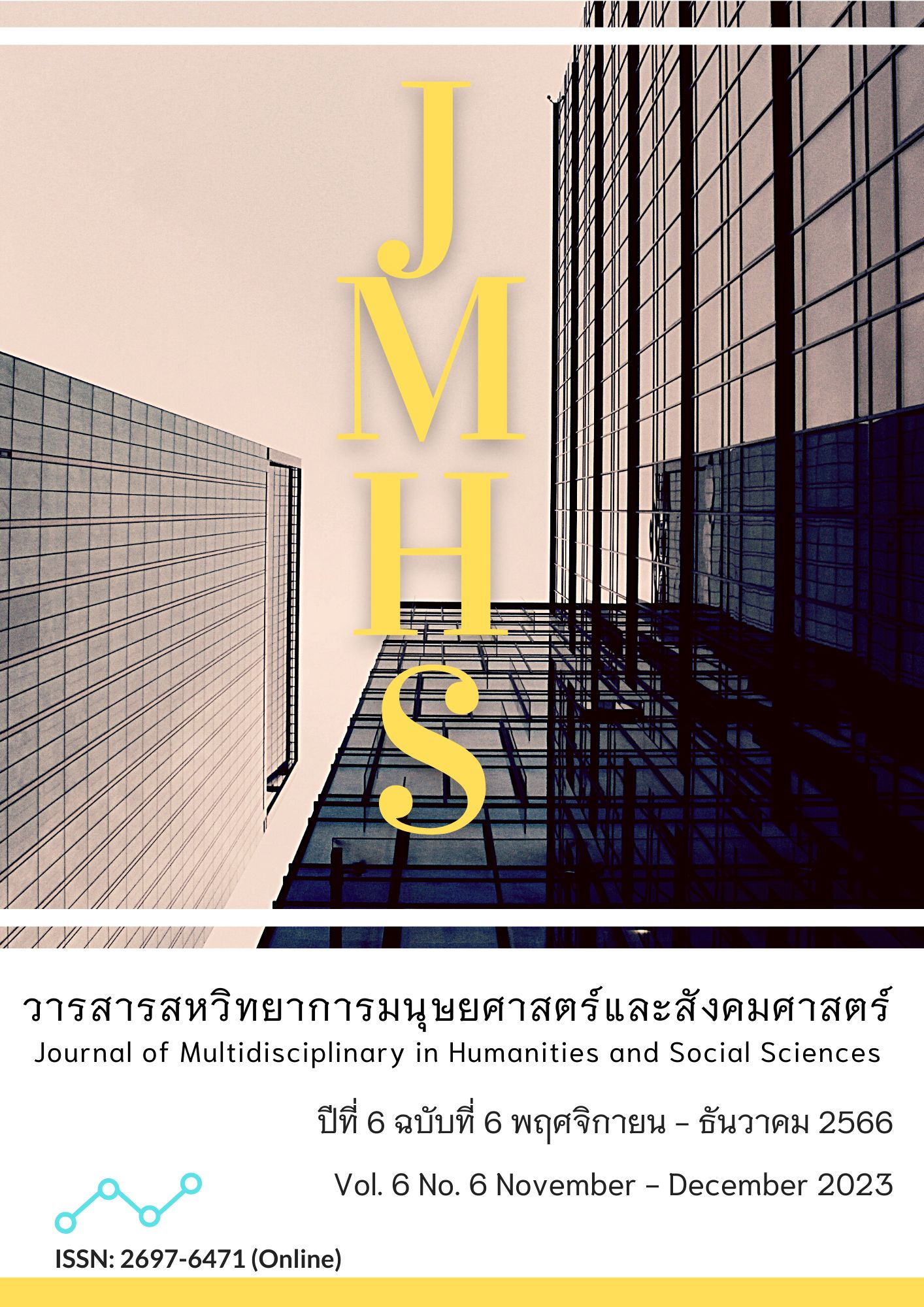Organizational Factors and Technology Innovation Acceptance Which Affects Success of Audit Information Systems for Certified Public Accountant
Main Article Content
Abstract
The purpose of this research was (1) to study organizational factors affecting the success of the utilization of information systems in audit work in terms of quality of the system, quality of information, benefits, timeliness, and satisfaction of certified public accountants, and (2) to study the acceptance of technology innovation affecting the success of the utilization of information systems in audit work in terms of quality of the system, quality of information, benefits, timeliness, and satisfaction of certified public accountants. This was quantitative research using the questionnaire as a research tool. The population and sample were certified public accountants (CPAs). Data analysis and hypothesis testing to answer the research objectives. Descriptive statistical analysis was used, and inference statistical analysis was used by multiple regression analysis.
The results of the research revealed that (1) the organizational factor in terms of the support of supervisors and the organizational structure had a positive influence on the success of using information systems in audit work. quality of the system, quality of information, benefits, timeliness, and satisfaction, in terms of personnel, there was a negative influence on the success of using information systems in audit work, system quality, benefits, and timeliness, and (2) the technology innovation acceptance factor in terms of performance expectations from use in terms of facilities, ease of use, and the expectation of trying to use had a positive influence on the success of using information systems in auditing. quality of the system, quality of information, benefits, timeliness, and satisfaction of certified public accountants.
Article Details

This work is licensed under a Creative Commons Attribution-NonCommercial-NoDerivatives 4.0 International License.
Views and opinions appearing in the Journal it is the responsibility of the author of the article, and does not constitute the view and responsibility of the editorial team.
References
ชุตินุช อินทรประสิทธิ์. (2562). การสอบบัญชีในยุค Big Data. สุทธิปริทัศน์, 32(103), 189-201. สืบค้นจาก https://so05.tci-thaijo.org/index.php/DPUSuthiparithatJournal/article/view/243670
ณัฏฐพันธ์ เขจรนันทน์. (2559). คู่มือสู่องค์การแห่งความสำเร็จ. กรุงเทพฯ: ปัญญาชน.
ปรีภัทร เกตุมงคลพงษ์, เกียรติ บุญยโพ, กุลประวีณ์ ศิริภูมิพลังกร และ ไพรัตน์ สาอุดม. (2563). ปัจจัยการยอมรับการใช้งานเทคโนโลยีดิจิทัลที่มีผลต่อการตัดสินใจใช้งานเทคโนโลยีดิจิทัลในการปฏิบัติงานของบุคลากรในบริษัทเอกชน จังหวัดกรุงเทพมหานคร ในสถานการณ์การระบาดของโรคติดเชื้อไวรัสโคโรน่า 2019. วารสารการบริหารการปกครองและนวัตกรรมท้องถิ่น. 4(3), 141-156. สืบค้นจาก https://so03.tci-thaijo.org/index.php/JLGISRRU/article/view/247962
พีรวัส ปทุมุต์ตรังษี, จรูญ ชำนาญไพร, เบญจฐา วัฒนกุล. (2566). การยอมรับเทคโนโลยีที่มีผลต่อการตัดสินใจซื้อสินค้าออนไลน์ของวัยรุ่น ในอำเภอปากเกร็ด จังหวัดนนทบุรี. วารสารนวัตกรรมการจัดการศึกษาและการวิจัย, 5(1), 49-60. สืบค้นจาก https://so02.tci-thaijo.org/index.php/jemri/article/view/258588
มณีรัตน์ วงษ์ซิ้ม. (2559). ปัจจัยที่มีผลต่อความสำเร็จของการนำระบบสารสนเทศทางการบัญชีมาใช้ในอุตสาหกรรมการผลิตในประเทศไทย. จุฬาลงกรณ์ธุรกิจปริทัศน์, 38(4), 1-32.
เรวัต ตันตยานนท์. (2560). ธุรกิจกับการสร้างนวัตกรรม. สืบค้นเมื่อ 20 สิงหาคม 2565, จาก http://www.bangkokbiznews.com/blog/detail/639896./.
สุทิพย์ ประทุม และ สรัญณี อุเส็นยาง. (2565). การยอมรับเทคโนโลยีสารสนเทศในยุควิถีชีวิตใหม่. วารสารลวะศรี, 6(1), 1-18. สืบค้นจาก https://so04.tci-thaijo.org/index.php/lawasrijo/article/view/257078
Aggelidis, P., & Chatzoglou, D. (2009). Using A Modified Technology Acceptance Model in Hospitals. International Journal of Medical Informatics, 78(2), 115-126. https://doi.org/10.1016/j.ijmedinf.2008.06.006
Camarero, C., Anton, C., & Rodriguez, J. (2013). Technological and Ethical Antecedents of E–book Piracy and Price Acceptance. Journal of the Electronic Library, 32(4), 542–566. DOI:10.1108/EL-11-2012-0149
Laudon, K. C., & Laudon, J. P. (2002). Management Information Systems. New Jersey: Prentice Hall.
Lei, W., Teerapornlertratt, P., Phuvakeereevivat, A., & Kumboon, B. (2023). The Development of Value Co-creation of New Retail in Taian City, The People’s Republic of China. International Journal of Multidisciplinary in Management and Tourism, 7(1), 1–12. https://doi.org/10.14456/ijmmt.2023.1
Ooi, K. B., & Tan, G. W-H. (2016). Mobile Technology Acceptance Model: An Investigation Using Mobile Users to Explore Smartphone Credit Cards. Journal of Expert Systems with Applications, 59, 33-46. https://doi.org/10.1016/j.eswa.2016.04.015
Park, E., & Kim, K. J. (2014). An Integrated Adoption Model of Mobile Cloud Services: Exploration of Key Determinants and Extension of Technology Acceptance Model. Journals of Telematics and Informatics, 31(3), 376–385. https://doi.org/10.1016/j.tele.2013.11.008
Zhao, A., & Phakdeephirot, N. (2023). Research on Influencing Factors of Employee Safety Behavior - Data from Construction Enterprises in Hebei Province, China. International Journal of Multidisciplinary in Management and Tourism, 7(1), 79–104. https://doi.org/10.14456/ijmmt.2023.6


